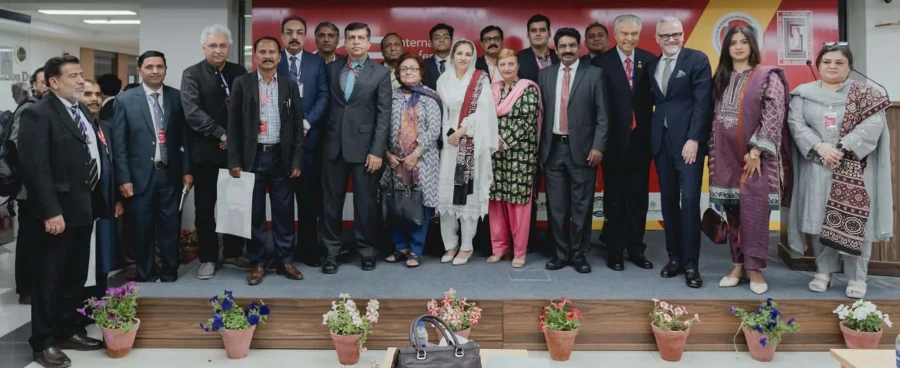The Institute of Business Management (IoBM) recently bought a diverse range of thought leaders together for the Second International Conference on Education (ICE) 2023. Addressing the theme of “The Changing Education Landscape.”, this edition of the annual conference focused on the Sustainable Development Goal 4 (SDG-4) established by the UN which aims to shed light on the subject of Quality Education globally.
The esteemed Chief Guest at the occasion was Ms. Rana Hussain, Interim Education Minister of Sindh, who is also a visionary in the field of education. The President of IoBM was the Conference Patron, Mr. Talib S. Karim for the event.The multifaceted insights from the diverse range of speakers at various sessions held at the conference set the tone for a dialogue that transcends boundaries and envisions a future where education is not just a system but a catalyst for holistic societal development in Pakistan.
The keynote speakers at the event included Professor Stefan Krummaker from the Queen Mary University of London, a Professor of Leadership Practice; Deputy Vice-Principal (Education) and Member of the Department of People and Organisations along with Prof. Dr. Muhammad Sarwar, Dean, Faculty of Education, International Islamic University, Islamabad.
This unique assembly of thought leaders signified a departure from the conventional conference structure. “The Changing Education Landscape” with respect to SDG-4 of the UN’s 17 Sustainable Development Goals was not just another theme as it encapsulated a call to arms for educators, policymakers, and stakeholders to collectively navigate the dynamic challenges and opportunities that lie ahead.Addressing the conference, Ms. Rana Hussain, Interim Minister for Education, Sindh stated: “Effective collaboration with educational institutions is key to achieving our objectives in ensuring inclusive quality education. Emphasizing the essential elements of People, Planet, Prosperity, Peace, and Partnerships for sustainable development, we acknowledge that addressing governance and accountability gaps is crucial for the successful implementation of the Right to Education and SDG-4 targets in Pakistan, particularly in Sindh.
The changing labor market, influenced by digitalization, automation, and globalization, underscores the need for retraining and up-skilling to meet the increasing demand for highly skilled individuals. Communication skills are highlighted as pivotal, and the importance of strong, autonomous universities as strategic partners in advancing common goals, particularly in promoting the SDGs, cannot be overstated.









